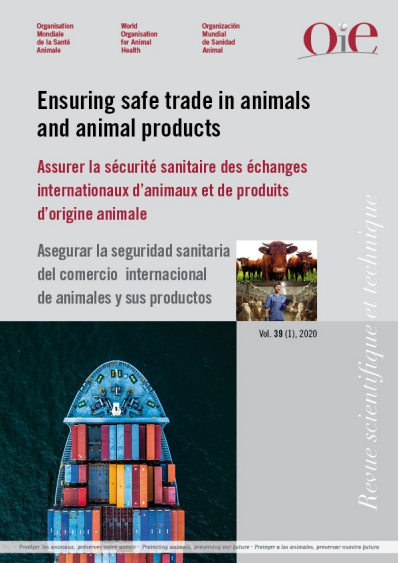WORK WITH OTHER INTERNATIONAL ORGANIZATIONS
The WTO and the World Organization for Animal Health (WOAH)
WOAH (founded as OIE) is one of the standard-setting bodies recognized by the Agreement on the Application of Sanitary and Phytosanitary Measures. Collaboration between the WTO and WOAH concerns the use of international standards in the context of the SPS Agreement. The SPS Committee maintains close contact with WOAH in numerous areas related to animal health.
- See WTO Secretariat note: Relationship with Codex, IPPC and WOAH (G/SPS/GEN/775, May 2007)
On this page:
See also:
Note: Note: The World Organisation for Animal Health was founded as the Office International des Epizooties (OIE), and is referred to as such in the SPS Agreement.
Introduction
The SPS Agreement states that “to harmonize sanitary and phytosanitary measures on as wide a basis as possible, Members shall base their sanitary or phytosanitary measures on international standards, guidelines or recommendations”.
The Agreement recognizes the International Office of Epizootics as the relevant organization for animal health and invites WTO members to play a full part in promoting the development and periodic review of standards, guidelines and recommendations.
- A formal cooperation agreement between the International Office of Epizootics and the WTO was agreed in July 1998 (WT/L/272).
- See the Preamble, Article 3.4, Article 12.3 and Annex A paragraph 3(a) of the SPS Agreement for detailed references to the standard-setting bodies.
WOAH
WOAH is an intergovernmental organization located in Paris, France, that was founded in 1924 to fulfil six main missions:
- To ensure transparency on global animal diseases
- To collect, analyse and disseminate veterinary scientific information
- To encourage international solidarity in the control of animal diseases
- To safeguard world trade by publishing health standards for international trade in animals and animal products (within its mandate under the SPS Agreement)
- To improve the legal framework and resources of national veterinary services
- To provide a better guarantee of food of animal origin and to promote animal welfare through a science-based approach.
These missions are achieved through various activities, including the establishment of standards, guidelines and recommendations pertaining to animal health. As part of its work, WOAH develops and reviews the:
- Terrestrial Animal Health Code (for mammals, reptiles, birds and bees) and the Manual of Diagnostic Tests and Vaccines for Terrestrial Animals; and
- Aquatic Animal Health Code (for amphibians, crustaceans, fish and molluscs), and the Manual of Diagnostic Tests for Aquatic Animals
The above-mentioned codes as well as their associated manuals are designed as reference documents to be used by the veterinary administrations or the competent authorities of WOAH member countries to assist them in establishing the health regulations that their countries should apply to the import and export of live animals and animal products in order to avoid the spreading of pathogens responsible for diseases to other animals or to human beings.
In addition to recommendations specific to diseases, WOAH has also developed general principles relating to risk analysis methodology, which comprises four components, namely import risk assessment, assessment of veterinary services, zoning/regionalisation, and surveillance and monitoring.
As scientific knowledge on disease agents and their ways of diffusion increases every day, new diagnostic techniques become available, and control methods become more refined, WOAH codes and manuals are revised. For the development of recommendations, WOAH procedures encourage the active participation of member countries in drawing up the rules that will apply both to others and to themselves. These recommendations are established by consensus by members’ chief veterinary officers.
In addition, WOAH has set up an Observatory project to provide an insight into the uptake of international standards by WOAH member countries.
WOAH standards are referred to as relevant international standards in numerous SPS notifications to the WTO. The standards have also been evoked in the context of many specific trade concerns (STCs) raised in the SPS Committee. Likewise, the standards have also proved an important reference point for the dispute settlement mechanism of the WTO.
- For more information, visit the WOAH website
STDF
The Standards and Trade Development Facility (STDF), a joint initiative of the WTO, World Bank, FAO, World Health Organization and WOAH, is a global partnership to facilitate safe trade, contributing to sustainable economic growth, poverty reduction and food security. It promotes improved food safety, animal and plant health capacity in developing countries.
- For more information, visit the STDF website

